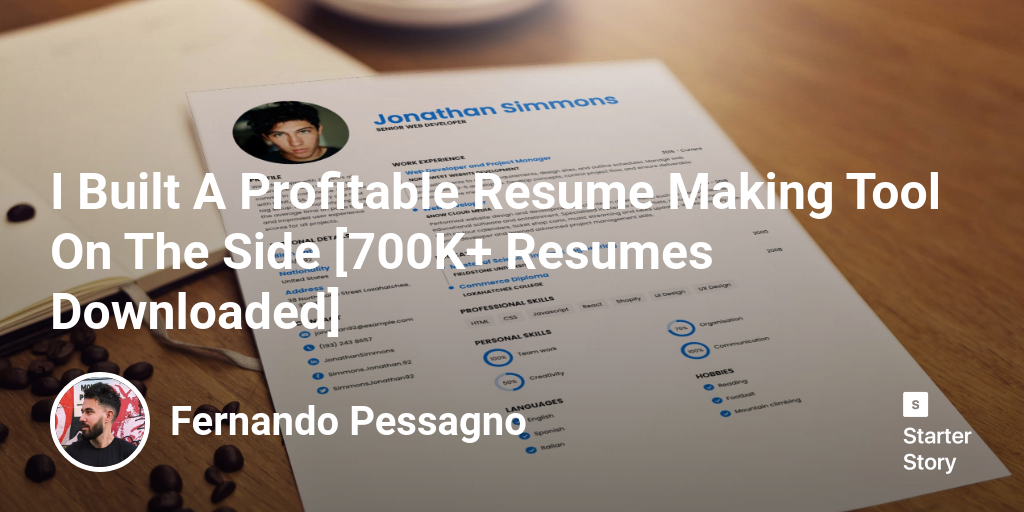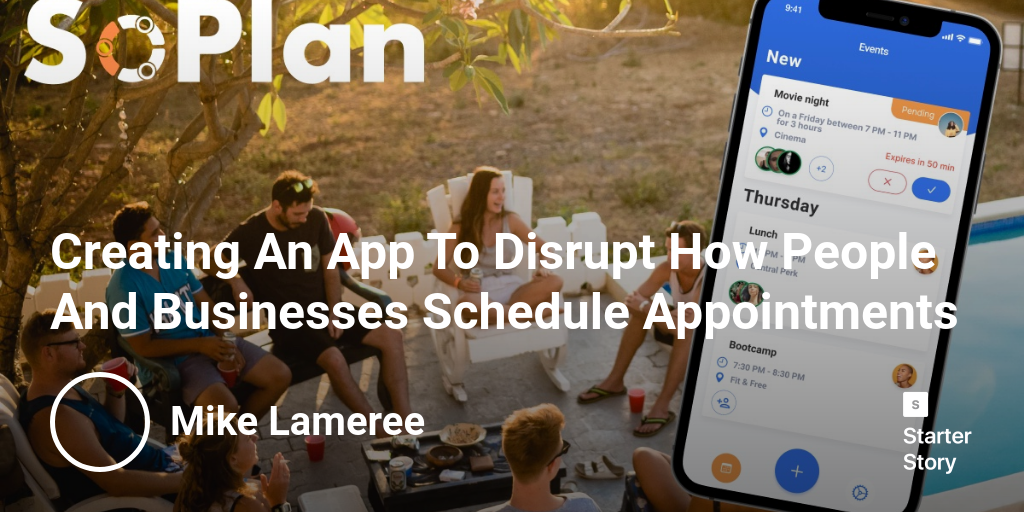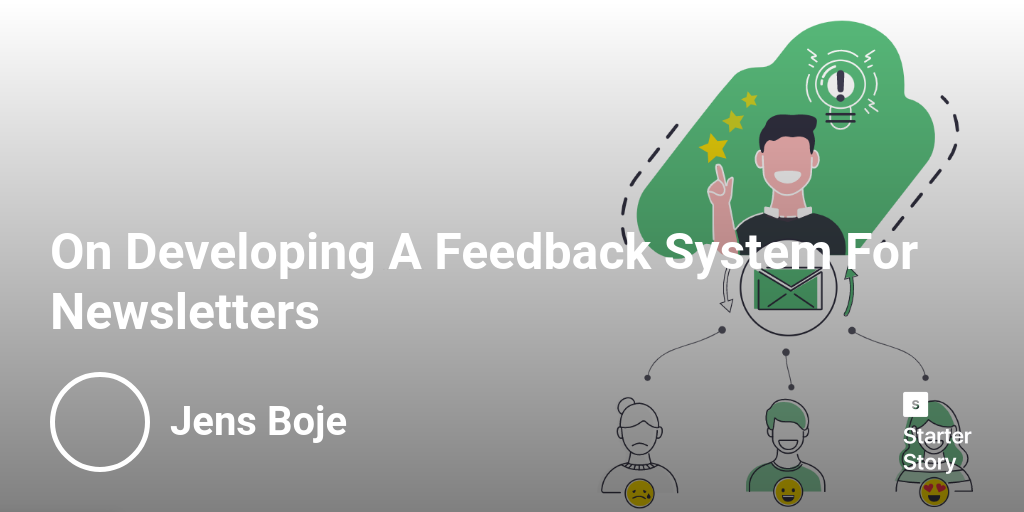
24 Tips For Starting A Successful Saas Product Developer Business (2025)
Want to start your own saas product developer business? Here are some tips you should know:
Learn more about starting a saas product developer business:
Where to start?
-> How much does it cost to start a saas product developer business?
-> Pros and cons of a saas product developer business
Need inspiration?
-> Other saas product developer business success stories
Other resources
-> Profitability of a saas product developer business
We've interviewed thousands of successful founders at Starter Story and asked what advice they would give to entrepreneurs who are just getting started.
Here's the best advice we discovered for starting a saas product developer business:
#1: Daniel Nguyen, founder of KTool:
We chatted with with Daniel, founder of KTool ($1K/month). In our interview, Daniel says:
Don’t make the mistake of spending all your time on product and development. Spend at least 50% of your time on sales and marketing.
Additionally:
Entrepreneurship is exciting but it will likely be the most challenging thing in your career. Join a supportive community such as Indie Hacker or Twitter maker community.
Read the full interview ➜
#2: Fernando Pessagno, founder of Resume Maker Online:
We chatted with with Fernando, founder of Resume Maker Online ($2K/month). In our interview, Fernando says:
At first, ResumeMaker.Online was never meant to be something other than a fun side project. However, the launch was far more successful than I could’ve ever anticipated, and it opened the doors for considering ways to monetize it.

Read the full interview ➜
#3: Mike Lameree, founder of SoPlan :
We chatted with with Mike, founder of SoPlan ($0/month). In our interview, Mike says:
It's crucial to surround yourself with individuals and agencies that truly believe in your business, share your objectives, and are genuinely committed to helping you succeed.
Read the full interview ➜
#4: Mat De Sousa, founder of Widebundle:
We chatted with with Mat, founder of Widebundle ($55K/month). In our interview, Mat says:
My first users were the ones from the Facebook Group, and then I kept contacting people who commented and posted in the communities.
Read the full interview ➜
#5: Sufian Chowdhury, founder of Kinetik:
We chatted with with Sufian, founder of Kinetik ($/month). In our interview, Sufian says:
Instead of just chasing dollars, which is a trap many fall into, it's all about finding your "why." This "why" becomes your motivation, pushing you to keep moving forward despite any challenges.
Additionally:
One of the missed opportunities was building the product solely from the perspective of one customer rather than a wide variety of perspectives.
Read the full interview ➜
#6: Mike Lameree, founder of SoPlan :
We chatted with with Mike, founder of SoPlan ($0/month). In our interview, Mike says:
I underestimated the effort required to launch a business. Building a product is easy. Getting people to know your product is more difficult than I would expect.
Additionally:
My biggest mistake was thinking people would change their behavior to use my app. I did not have synchronization to other calendars in place. I thought people that use my app should use my calendar instead of their own calendar. People just don’t like to change.

Read the full interview ➜
#7: Oleg, founder of ScrapingAnt:
We chatted with with Oleg, founder of ScrapingAnt ($20K/month). In our interview, Oleg says:
Russia started a war against my country, and several first months were tough in the scope of customer support and sales.
Additionally:
Don’t struggle if your expectations weren’t met in the desired time, as in case you’re pushing it forward every day - you’ll achieve your goals sooner or later.
Read the full interview ➜
#8: Esben Friis-Jensen, founder of UserFlow:
We chatted with with Esben, founder of UserFlow ($/month). In our interview, Esben says:
Despite being bootstrapped in a crowded market filled with VC-backed competitors, we are growing really fast at 10% month over month and have millions in ARR.
Additionally:
Your primary focus should be on building a great product that solves a real problem for customers.
Read the full interview ➜
#9: Stefan Debois, founder of Pointerpro:
We chatted with with Stefan, founder of Pointerpro ($287K/month). In our interview, Stefan says:
My tip for all entrepreneurs: listen to your customers. Don’t take it personally, don’t feel criticized. Questions and remarks are like a goldmine. They boost the growth of your product or service.
Additionally:
If you have a good idea, and it’s feasible, you just have to take the steps to realize your plan.
Read the full interview ➜
#10: Nikhil Kotcharlakota, founder of PriceOps:
We chatted with with Nikhil, founder of PriceOps ($/month). In our interview, Nikhil says:
Have a very clear idea of the problem statement and how the product you want to build will solve the problem.
Additionally:
Communicate the value you deliver at every possible step. Pricing pages should have a list of benefits, not just features.
Read the full interview ➜
#11: Saravana Kumar, founder of Kovai.co:
We chatted with with Saravana, founder of Kovai.co ($/month). In our interview, Saravana says:
Try showing your prototype to as many stakeholders as possible during the development stage, to understand if the product has a market, capabilities or features the market expects it to have, and general feedback on usability.
Additionally:
Be extremely clear on the pain point that you are trying to solve. Try becoming as specific as possible with your answer, before you start developing a product or survive.
Read the full interview ➜
#12: Jamie Hanratty, founder of Metro Retro:
We chatted with with Jamie, founder of Metro Retro ($/month). In our interview, Jamie says:
We try to be super personal with our customers. We’re transparent that we’re just three founders, with two of us working full-time on Metro Retro.
Additionally:
There will be a million avenues and opportunities you could follow - but you will have to say no to most of them. Pick well!
Read the full interview ➜
#13: Jens Boje, founder of FeedLetter:
We chatted with with Jens, founder of FeedLetter ($40/month). In our interview, Jens says:
the best thing you can do is to work on your mindset and decouple your self-esteem and confidence from the things you publish.

Read the full interview ➜
#14: Yash Chavan, founder of SARAL:
We chatted with with Yash, founder of SARAL ($50K/month). In our interview, Yash says:
When it comes to making smart choices, our profits come from a combination of many small, well-informed decisions. We haven't had a single "aha moment” that changed the way we do business, but staying close to our customers has always helped us do well.
Additionally:
A lot of founders mess up because they don't know their marketing and don't interact with customers. I’m on calls with customers almost every day. Learn to understand people’s problems intimately so you can solve them with your business.
Read the full interview ➜

Download the report and join our email newsletter packed with business ideas and money-making opportunities, backed by real-life case studies.

Download the report and join our email newsletter packed with business ideas and money-making opportunities, backed by real-life case studies.

Download the report and join our email newsletter packed with business ideas and money-making opportunities, backed by real-life case studies.

Download the report and join our email newsletter packed with business ideas and money-making opportunities, backed by real-life case studies.

Download the report and join our email newsletter packed with business ideas and money-making opportunities, backed by real-life case studies.

Download the report and join our email newsletter packed with business ideas and money-making opportunities, backed by real-life case studies.

Download the report and join our email newsletter packed with business ideas and money-making opportunities, backed by real-life case studies.

Download the report and join our email newsletter packed with business ideas and money-making opportunities, backed by real-life case studies.












